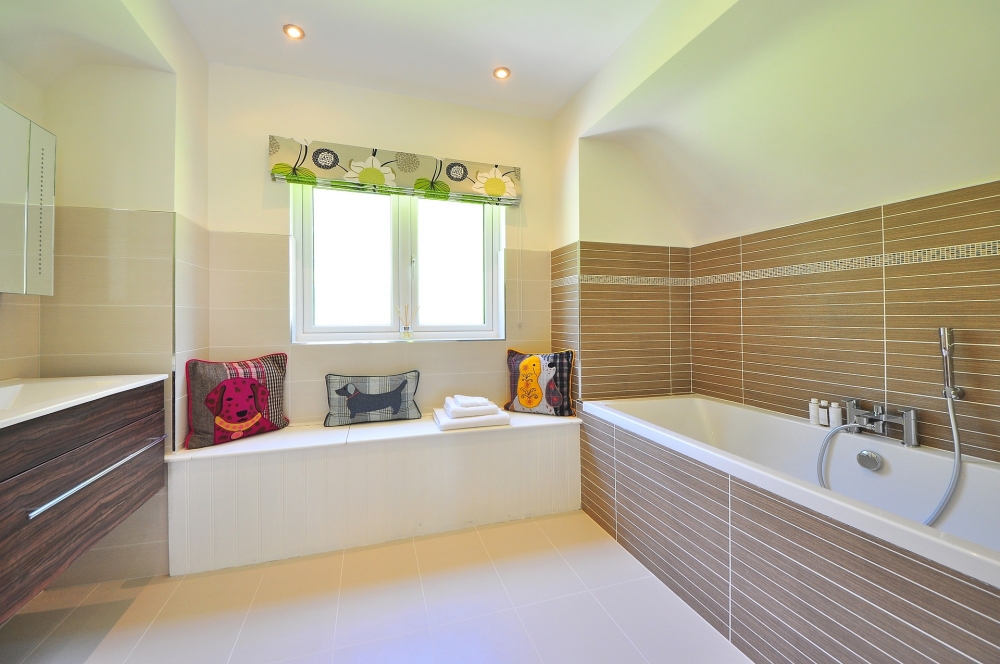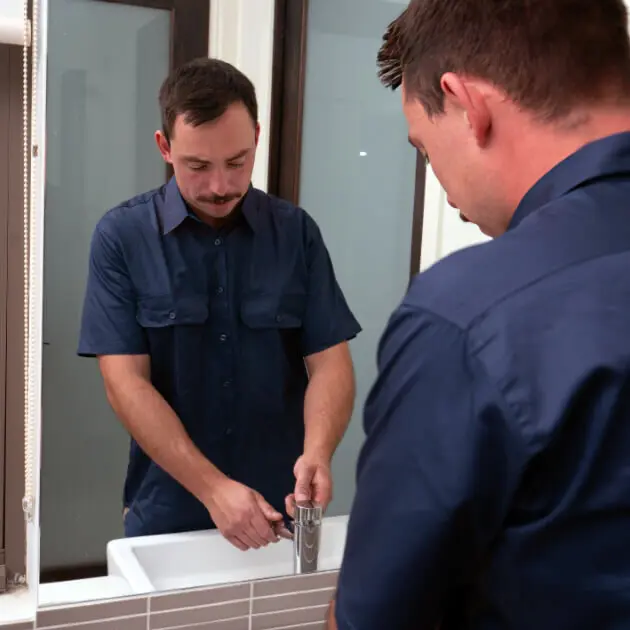Essential Bathroom Plumbing Tips for First-Time Homeowners
Essential Bathroom Plumbing Tips for First-Time Homeowners
Blog Article
Everyone is bound to have his or her own rationale in relation to 11 Must-Read Tips for Plumbing a New House.

For brand-new property owners, understanding and preserving bathroom plumbing can save both money and time by protecting against expensive problems down the line. Here are some necessary shower room pipes ideas to assist you keep every little thing running smoothly.
Get Ready For Winter
Secure your pipes from freezing throughout winter by shielding pipes in unheated areas like basements, attic rooms, and garages. Throughout extreme chilly, let cold water drip from taps offered by exposed pipes to assist stop cold.
Arrange Normal Upkeep
Consider scheduling yearly inspections with a certified plumber. They can find issues that you may miss out on, such as covert leaks or deterioration on pipes and components. Normal upkeep assists extend the life of your pipes system and can protect against emergencies.
Acquaint Yourself with the Main Shut-Off Valve
Recognizing where the primary water shut-off valve lies in your home is crucial. This permits you to quickly turn off the supply of water in case of major leakages or throughout plumbing emergencies, protecting against extensive water damages.
Consistently Check for Leaks
Tiny leaks can lead to large problems. Regularly examine under sinks, around toilets, and near pipes fixtures for any kind of signs of leakages. Search for wetness, small drips, or rust. Catching and fixing leaks early can stop more severe damages and save water.
Keep Your Hot Water Heater
Ensure your water heater is readied to a proper temperature (usually about 120 degrees Fahrenheit) to avoid hot and reduce power use. Flush the storage tank each year to remove debris accumulation, which can reduce the efficiency and lifespan of your heating unit.
Update Your Fixtures
If your home has older components, take into consideration upgrading to a lot more effective models. Modern toilets, showerheads, and taps are created to use much less water while giving great pressure, which can dramatically minimize your water bill and ecological footprint.
Beware with DIY Pipes Repairs
While it's alluring to take care of all home repair services on your own, beware with pipes. Some problems might need expert know-how, especially if they include major water lines or sewer repairs. Working with an expert can occasionally be a lot more cost-effective than DIY, particularly if it protects against further damages.
Don't Ignore Slow Drains Pipes
If your sink or bathtub is draining gradually, it's commonly a sign of an obstruction forming. Resolving this very early can prevent a complete clog. Make use of a bettor or a plumbing's snake to clear out particles. Prevent utilizing chemical drain cleansers as they can damage your pipelines with time.
Know What Not to Flush
Bathrooms are not waste disposal unit. Avoid purging anything other than toilet paper and human waste. Things like wipes, feminine health products, and cotton bud should be disposed of in the garbage to prevent blockages and sewer backups.
Mount Strainers in Drains
Place filters in your sink and tub drains pipes to capture hair and various other particles prior to they enter your pipes system. Cleaning up the strainers routinely will assist stop accumulation and keep water moving easily.
Conclusion
Comprehending and maintaining your home's shower room plumbing can avoid several typical problems. By following these crucial ideas, you can guarantee your restroom stays useful and efficient, saving you time and money in the long run.
Essential Plumbing Tips for Homeowners: Keep Your Pipes Flowing Smoothly
As a homeowner, understanding the basics of your plumbing system can save you time, money, and a lot of headaches. Plumbing issues can range from minor annoyances like dripping faucets to major problems like burst pipes that cause significant damage. This guide provides essential tips to help you maintain your plumbing system and tackle common issues.
Understanding Your Plumbing System
Supply System: Brings fresh water into your home from a municipal source or a well. Drain-Waste-Vent System: Removes wastewater and vents sewer gases outside. Fixtures and Appliances: Includes sinks, toilets, showers, dishwashers, and washing machines. Basic Maintenance Tips
Regular Inspections: Periodically check for leaks, corrosion, and other signs of wear and tear. Look under sinks, around toilets, and near water heaters. Know Your Main Shut-Off Valve: In case of a major leak, you’ll need to shut off the water quickly. Ensure everyone in your household knows where the main shut-off valve is located. Prevent Frozen Pipes: In cold climates, insulate exposed pipes and let faucets drip during extreme cold to prevent freezing. Use Strainers: Install strainers in sinks and tubs to catch hair, food particles, and other debris that can cause clogs. Common Plumbing Issues and Solutions
Clogged Drains:
Prevention: Avoid pouring grease down the drain and use drain screens to catch debris. DIY Fix: Use a plunger or a plumbing snake to clear minor clogs. For stubborn clogs, a mixture of baking soda and vinegar can sometimes help. Leaky Faucets:
Prevention: Replace washers and seals regularly. DIY Fix: Turn off the water supply, disassemble the faucet, and replace worn parts.

Services Report this page